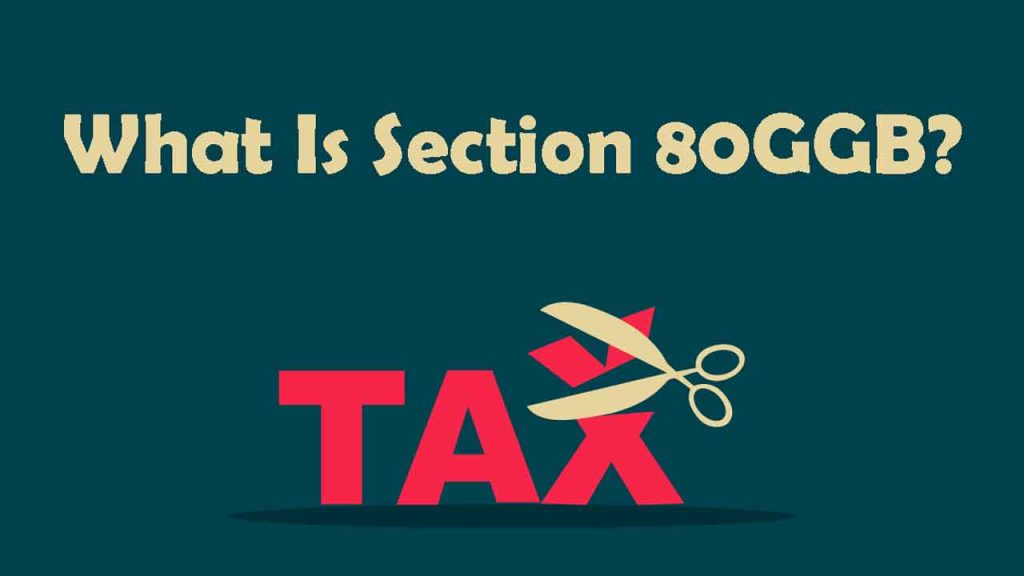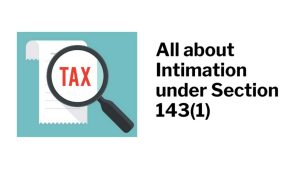Section 80GGB provides tax exemption for gifts to political groups in order to stimulate more donations. This part of the Income Tax Act of 1961 primarily addresses gifts and profits generated by Indian companies to political groups or electoral trusts.
According to Section 80GGB of the Income Tax Act of 1961, any Indian corporation or business that gives money to an authorised political party or electoral trust in India may assert a tax deduction for both the money raised.
Section 29A of the Representation, of the People Act 1951 requires the political party obtaining the donation to be accredited. An electoral trust is a non-profit corporation established pursuant to Section 8 of the Companies Act of 2013. An electoral trust should accept voluntary donations from many other businesses and redistribute them to licenced political groups.
Must Read – What is Section 80G?

How to Claim deductions under Section 80GGB?
Section 80GGB lays out the terms and regulations for donating to political parties in India. The foregoing are the most important things to remember.
- Section 80 GGB prohibits cash donations. As a result, donations to political parties should be provided in other ways, such as by check, demand draught, or electronic transfer.
- Under Section 80 GGB of the Income Tax Act, there seems to be no permissible relevant cap on gifts given to political groups. However, under the Companies Act of 2013, businesses will spend up to 7.5% net profit. In its Profit and Loss account for the fiscal year in question, the respective corporation must reveal the sum given as well as the identity of the political party.
- If the funds were provided via electoral bonds, there is no need to include the identity of the party in the business’s P&L statement. The only thing that must be noted is the money paid.
- According to the most recent rules, any advertising from a corporation on a platform controlled by a Political Party will be deemed a contribution under Section 80 GGB. As a result, it is tax-deductible. This encompasses social media, magazines, journals, and so on.
- There really is no limit to the number that can be donated to a political party, but it is important for a corporation to pay the full amount through an appropriate channel and maintain a documentary record of the very same.
- Certain restrictions may apply to donations made under Section 80 GGB.
- A Public Sector Corporation.
- A business which has been in operation for 3 years or less.
Must Read – What is Section 80GGA?
Key Points to Contributions
If your corporation is thinking about donating to a political party in India, there are a few things you should know. Here are all the important points to recall as outlined in the Income Tax Act of 1961.
Must Read – What is Section 80GG?
- Any corporation or business registered in India is free to contribute to any political party it chooses.
- A corporation is permitted to make donations to as many political parties as it desires. All donations made under Section 80GGB will be grouped for the purpose of calculating the income tax deduction.
- Section 29A of the Representation of the People Act, 1951 requires that the political party obtaining the donation be properly registered.
- The electoral trust that receives the gift should be duly registered and accepted by the appropriate authorities.
- Section 80GGB does not permit cash payments under any circumstances. Cheques, demand draft, electronic transfers, and pay orders to the political party’s bank account have been the only suitable methods of payment. This is done to encourage fairness in political fundraising and to keep a record of how much money is earned and spent.
- Section 80GGB allows the company to subtract 100% of the money contributed to a political party. As a result, you are free to make contributions to political groups of your choice and assert tax deductions for them. It is crucial that you maintain accurate documentation of the money paid and follow all of the rules outlined in the Income Tax Act of 1961. If you do not obey the prescribed process, the relevant authorities may dismiss your claims for the deduction.



